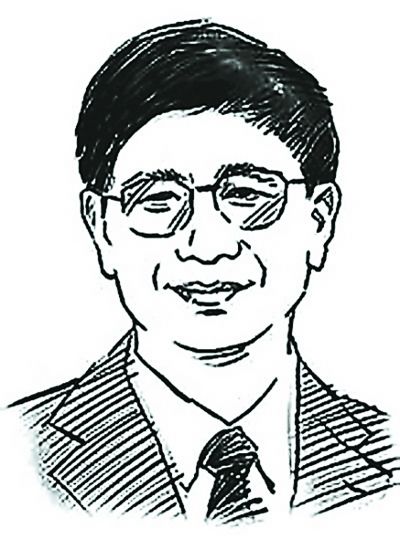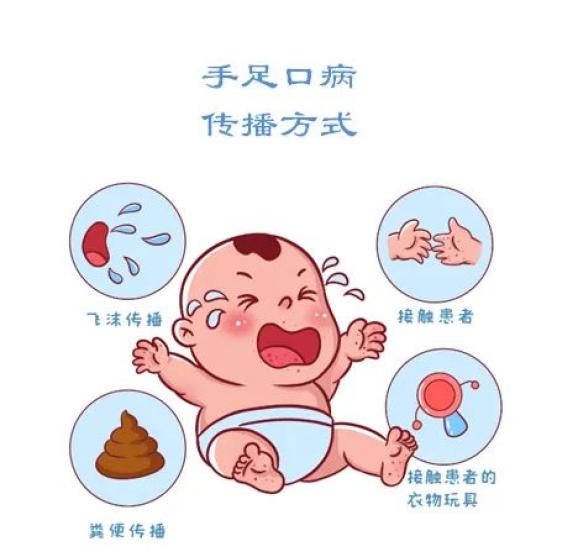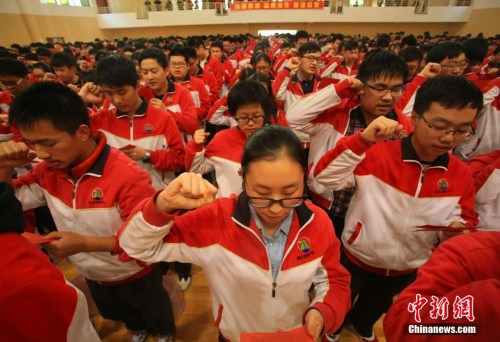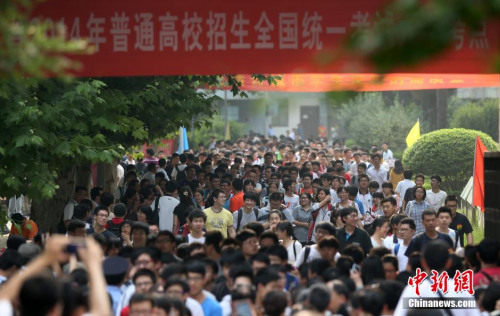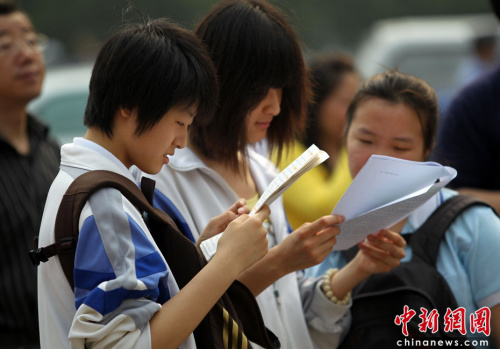There is an animal that has four legs when it was a child, two legs when it grows up and three legs when it grows old. Many people have guessed this riddle, and the answer is people.
Babbling is protected by parents and supported by children when stumbling. This is the inheritance of a complete Chinese family. Children don’t have to worry about speeding cars when they play downstairs, and the old people feel meticulous care when they move indoors. This is the temperature transmitted to residents by a friendly city.
Shanghai, a prosperous international metropolis, has not only the colorful side of high-rise buildings, but also the winding alleys and noisy streets. In addition to pursuing an open, inclusive and dynamic urban temperament, it has become the pursuit of Shanghai’s new round of urban development planning to see Excellence in detail and replace demolition and construction with transformation, and to outline the space that is livable, suitable for raising and suitable for business with embroidery needles in the context of urban history. In order to protect the style of historical blocks, more and more old communities in Shanghai have begun to be slightly updated from the bottom up, and the government, enterprises and residents have participated in the co-construction and carried out temperature transformation.
In 2018, Shanghai Vanke, together with Xinhua Street and famous designers in Changning District, held the theme forum of "2018 Urban Design Festival | Beautiful Xinhua", focusing on the micro-renovation of public and residential spaces. As the chief co-builder, Shanghai Vanke mainly participated in the urban micro-renewal project of Xinhua Road Street at three points, covering many aspects such as the transformation of public spaces in streets, communities and corridors. Nowadays, the old community has taken on a new look, and the micro-renewal has brought a great sense of gain to the local residents.
Guarding the "sunset" 70-year-old house "transformation"
Grasping the newly-installed handrail on the wall with both hands, 90-year-old Guan Apo climbed the stairs step by step, slowly but steadily. For her, she has lived here for most of her life, and the bricks and tiles of the surrounding buildings and apartments are so familiar, so fresh and warm, such as this aging-adapted staircase.
Guan Apo’s apartment is located in a 70-year-old public house called Jinglaocun. As the name suggests, there are 19 elderly people living in the house, three of whom need to travel in wheelchairs. Jinglaocun used to be a three-storey dormitory building of state-owned enterprises. Like many similar buildings in Shanghai, there were many "problems" before the renovation, such as insufficient lighting, messy corridors, dense pipelines and lack of barrier-free facilities.
Respect for the elderly village before transformation
In November 2018, Jinglaocun began to transform. Shanghai Vanke and designers collected opinions and suggestions from residents in the building extensively, and finally decided to start from two parts: functional perfection and spatial integration, and create a more humanized, functional and modern living space that meets the needs of the elderly on the basis of preserving the historical features of the old building as much as possible.
When the old building got a new look, Guan Apo lost sleep: "I feel almost unrecognizable, and I stayed up happily that night."
Residents all believe that "the changes in the old building are earth-shaking." However, for designers, the overall structure of Jinglao Village has not been adjusted, and only three treatments have been made: increasing the light source at the top to enhance the aisle lighting; Walls and columns are wrapped with materials to make the corridor cleaner and more unified; Increase storage and functional space, and enhance the practicality of public space.
Considering that the residents are all elderly people, a large number of arc design elements are adopted in this renovation to avoid the coldness of hard lines visually and narrow the distance between buildings and people; Corners, stairs, lockers and other areas use rounded corners to minimize the possibility of bumping; The house number is specially enlarged and equipped with lighting facilities to solve the problem of unclear identification of the elderly and facilitate identification.
In the corridor, groups of lines with different colors on the ground are particularly eye-catching, extending all the way along the corridor. Shanghai Vanke said that these lines enhance the modernity of the building and also have a guiding function. It turns out that considering that some old people have bad waist and legs, and even some old people have a serious hunchback, the designer specially printed a "guide line". As long as he remembers the line corresponding to his own door, he can go home along the line without any difficulty.
There are still many such intimate designs in respect for the elderly. For example, there is a hidden compartment on one side of the stairs. With a gentle push, a stool will come out and you can sit on it and rest your feet. Beside the aisle, there is also a climbing grid tailored for pets.
People often say that the older people get, the smaller their hearts get. Old people need colorful and energetic lives. After the transformation, the village for the elderly uses a lot of bright colors, the first floor is vibrant yellow, the second floor is quiet blue, and the third floor is peaceful and green. People are in it, and there is no sense of boredom at all.
The reformed respect for the elderly village
What makes many residents around envy is that the elderly who respect the old village have their own sunshine garden. "Sit down and have a chat in the sun", in the corner of the roof of Jinglaocun, these words are particularly conspicuous on the ground. Bright yellow sofas and white umbrellas are arranged here as a leisure area for old people to chat about their homes and see the scenery. The original roof of Jinglao Village had a large idle area, so the designer re-planned it and set up a rest area, an activity area, a planting area and a drying area, so that the old people really had their own social space.
"China has entered an aging society, and the number of elderly people is increasing by 10 million every year. We hope to make their lives better and safer through warm design. " Zhang Haiao, an architect who participated in the design and renovation of Jinglao Village, said.
Take care of "Chaoyang" and make "parting ways" for hundreds of miles.
Wu Xin, a young designer who lives in Lane 222, Panyu Road, has a deep understanding of this sentence. Every day, she will walk here with a stroller-the ground is uneven, and the veranda, flower beds and vehicles will separate the 100-meter-long lane.
After the reconstruction of Lane 222 of Panyu Road
When thinking about the renovation plan, as a designer, Wu Xin considers enhancing the mobility of the pedestrian road; As a mother, she wants to create a safe and harmonious activity space for the next generation. After extensively soliciting opinions through activities such as "residents’ brainstorming", Wu Xin finally put forward the concept of "walking laboratory" from the perspective of a child, and drew lessons from the idea of sharing corridors in cities such as new york. Based on the two principles of "walking first" and "child-friendly", he designed to cancel kerbs and height differences, providing a complete shared corridor for pedestrians, non-motor vehicles and low-speed motor vehicles.
In the process of implementation, Shanghai Vanke divided the pavement into three sections with different colors, signs and enclosures: the middle garage area was painted with wave curves, which were taken from the history of the local "Niuqiaobang", and the fresh powder painting could play a warning role for passing vehicles; The original messy flower stands were demolished in the pedestrian areas on both sides, and a child-friendly walking experimental belt was made by using the free space, with four different colors to give pedestrians different walking experiences, and a simple children’s play area was designed with the help of various graphics. Through a series of transformations, the originally chaotic alley has been transformed into a shared passage giving priority to pedestrian and slow walking, especially providing children with a safe, free and comfortable walking experience.
A staff member of Xinhua Road Sub-district Office said that this transformation not only changed the street appearance, but also brought new ideas to urban design and management. "Urban renewal is immersive and integrated, and residents can participate together."
In addition to hardware, urban renewal projects also need post-operation and maintenance. In order to let more residents participate, the reconstruction team held many activities in this lane, such as a beautiful community festival and a community drama workshop, so that people can more integrate into community management.
Strolling along the Rainbow Road, you can see children jumping out of houses, old women with gray hair pacing, and young people with skateboards taking a nap on benches … This is the most charming and authentic alley style.
According to Shanghai Vanke, Panyu Road 222 will be widened into a two-way traffic lane in the future. The reason why they are willing to spend their mind and money is that they hope to explore the possibility of "sharing streets" through this "walking laboratory" and find the perfect combination of history, culture and modern life.
Expansion of Linked Emotional Micro-space
Sharing is not only for maximizing the use of resources, but also for emotional exchange and sharing. Some time ago, the TV series "Everything’s Fine" was a hit in China. Su Daqiang, the protagonist in the drama, was cheated out of his pension money because of his high income. He was almost cheated out of his real estate by a nanny because of emotional emptiness, and he did ridiculous things because of selfishness, weakness and stubbornness. In essence, this is an important reason why a person’s temperament has changed greatly due to his lack of family care and effective social interaction.
The study found that the more frequently the elderly socialize, the higher the happiness index. Experts from the Institute of Epidemiology and Health Care of University College London investigated the social situation and health status of 6,500 British men and women over 52 years old. The results show that compared with those who have a normal social life, the risk of death of socially isolated people is 26% higher.
In this round of urban micro-renewal, the third project of Shanghai Vanke has locked in the social problems of the elderly.
Xinfeng Village, located in Lane 669 of Xinhua Road, is a community with a relatively high proportion of elderly people, with half of the people over 60 years old. Old people love to be lively and chat, and neighbors often talk for an afternoon. However, Xinfeng Village has no special space for chatting. The public telephone kiosks and canteens with a net width of less than 1.1 meters at the entrance of the gate are the assembly points, and the space is narrow and the air is difficult to circulate.
Before the transformation of "good neighbor" micro-space
"It is necessary to provide residents with a space that can stay safely, be open and friendly, and reshape neighborhood relations." With this original intention, the designer and Shanghai Vanke transformed this small space into a micro-space in the name of "good neighborhood". In order to expand the space swing area, the gate of the community has been moved by one meter as a whole to ensure that residents outside the glass door do not scrape with vehicles. The "Neighbourhood" micro-space is also equipped with wooden benches and bookshelves, and sitting in it to chat at home and talk about mountains has become an important part of residents’ daily life.
Soon after the opening of the "good neighbor" micro-space, people’s behavior deeply touched the reformers. "The original bookshelves were empty, and now there are more and more books, which are spontaneously brought and shared by residents; There used to be an old doll on the table, but now it has become a lively’ old exchange corner’; The message board on the wall also wrote many wishes of the residents … These actions have brought everyone closer. " A staff member of Shanghai Vanke said.
The reformed "Good Neighborhood" Micro-space
"Neighborhood" micro-space has become an inseparable social place in the community, and other supporting facilities have also changed. The sorting garbage bins in the community are handled by foreign designers. Apart from telling people how to distinguish the types of garbage through colors, he also set up an independent tool room, with a washbasin, a locker, clothes hangers and high-pressure water pipes for cleaning arranged in an orderly manner, so that cleaning workers can also feel the deep warmth.
Bottom-up community micro-renewal stimulates urban power
"Although it is only some micro-updates, we hope to bring real changes to the lives of residents." Shanghai Vanke designer Zheng Wei said.
This change has been going on, and Vanke is also actively exploring in the field of urban renewal. In Shanghai, Zhangjiang Guochuang Center changed from an old LCD factory to a science and technology center; Shangsheng New Institute has changed from the former Shanghai Institute of Biological Products into a "7×24" vibrant community … Through a series of transformation, the idle stock assets have been given new functions.
Shanghai Vanke has also participated in the renovation of several old residential quarters such as Sanjia Garden and Yangqu Residential Quarter. It is worth mentioning that the micro-renovation projects of the three residential quarters that it participated in in in 2018 are all located around Shangsheng Xinsuo. In the future, this vibrant community will integrate office, entertainment, life and cultural functions, and radiate the surrounding areas, forming a series connection between urban organic renewal and the improvement of residents’ quality of life. Zhang Hai, senior vice president of Vanke Group and CEO of Shanghai Regional Headquarters, expressed the hope that through a series of transformations, young people will have room for struggle, residents will share the fruits of urban renewal, and the historical context will be passed down and the characteristics of the district will be brought into play.
The reporter learned that in the new round of urban development in Shanghai, a large number of urban renewal projects have emerged with the aim of exploring the urban context, preserving historical features and revitalizing existing assets. On this basis, the urban micro-renewal project with the community as the main transformation object is becoming an important component of this force. Taking Changning District as an example, in 2017, the "Two-year Action Plan for Beautiful Blocks" was launched, focusing on building four demonstration blocks, namely Xinhua Road, Yuyuan Road, Wuyi Road and Panyu Road (fahuazhen road). It was clearly stated in 26 construction tasks in eight categories that "urban renewal should be taken as the starting point to comprehensively improve the landscape effect of block buildings". Yuan Xiangqing, director of the regional function development office of Hongqiao and Zhongshan Park in Changning District, said: "Small-scale and gradual urban micro-renewal provides a new development path in the future. By increasing the functional space of blocks and communities, we will create a slow and comfortable functional experience, increase public greening, and improve the living environment, thus changing the lifestyle and improving the quality of living. " He said that more and more urban renewal people began to pay attention to streets and communities. As can be seen from the existing community micro-renewal projects, social capital participation is very high. This urban renewal model, which is guided by the government and participated by the public, has created a lot of vivid and interesting urban stories.
Hou Zhiren, a professor of landscape architecture at the University of Washington, said that in the past half century, there have been many bottom-up non-profit organizations in urban renewal in the United States. They not only restore old buildings, but also provide employment opportunities for community residents and opportunities for commercial development, and play a very important role in urban development. "(Urban renewal) can start with community creation and explore resources that have not been seen before. Some of these resources are physical, and some are human and cultural, which can turn decay into magic. "
